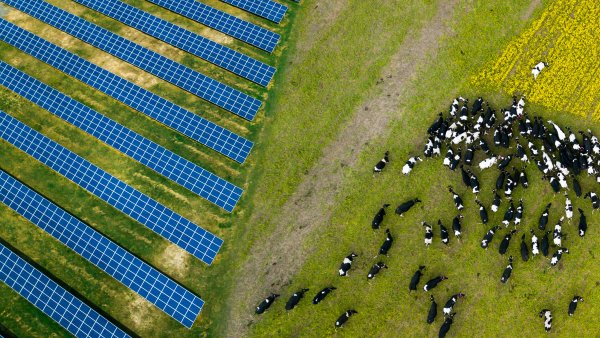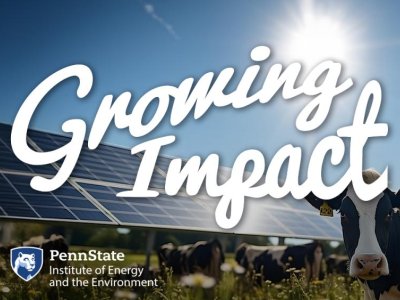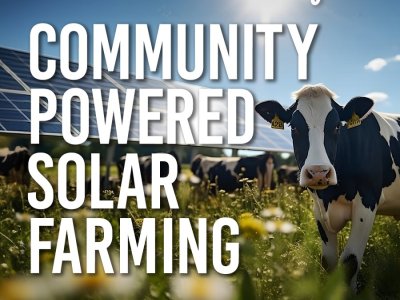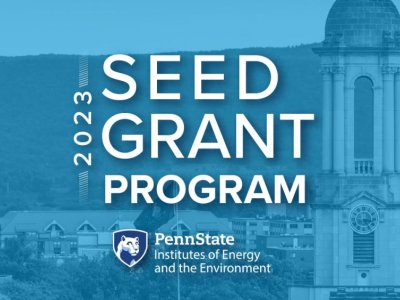
To meet a net-zero emissions economy by 2050, 0.5% of land in the contiguous U.S. will be needed for solar development. Nearly half the land surface in the contiguous U.S. and 25% of Pennsylvania is farmland. Viable agricultural land is shrinking in Pennsylvania and the U.S. due to housing and industrial development, in addition to pressures to find space for sustainable energy sources.
The proposed project will examine linkages between agrivoltaics, knowledge exchange, rural livelihoods, and environmental sustainability in Pennsylvania (PA). With substantial utility-scale solar energy production occurring on farmland in PA, current land use below those panels is in a state of transition, and the understanding of best management practices for solar farmland is limited and slowly evolving. Agrivoltaics – namely, solar grazing, co-locating pollinator-friendly native plants, and crop production – as well as soil restoration and protection under and near solar panels are initiatives in an incipient stage in PA. However, there are now multiple non-profit and for-profit organizations and extension agencies adding this to their expertise and working either nationally or PA-focused.
This study will investigate these initiatives in terms of a) local perceptions of solar energy versus hydraulic fracturing projects and how introducing agrivoltaics affects these perceptions, b) local and institutional innovation and knowledge exchange, c) new stakeholders introduced into the process due to agrivoltaics and related rural livelihood changes and d) scientific assessments of best practices for solar farmland management during current and post-solar panel/decommissioning phases.
Faculty from three colleges at Penn State will conduct research that is multi-disciplinary, utilizing diverse methodologies, including media analysis, expert consultations, interviews, stakeholder meetings and soil and vegetation analysis. This project will build on team members’ research in PA and elsewhere on farmers who have entered contracts with solar companies and compare this with PA farmers’ lengthier experiences with contracts and decommissioning in hydraulic fracturing energy projects.
This project will also build on prior research outside PA to study actors who are and those who are not able to access knowledge about agrivoltaics in PA and which household and community members can and cannot make livelihood changes. It will build on team members’ research on rural women, low-income populations, and solar energy siting, as well as deepen knowledge on soil and watershed health on land with solar panels under distinct agricultural management. Policy and research briefs produced from the seed research and close consultation with relevant non-profits, businesses, and policy-related organizations will help increase project-finding uptake. Finally, as this topic is eliciting great interest nationally, the team will utilize part of their time during the grant to write larger grant proposals for multiple agencies with relevant requests for proposals.









